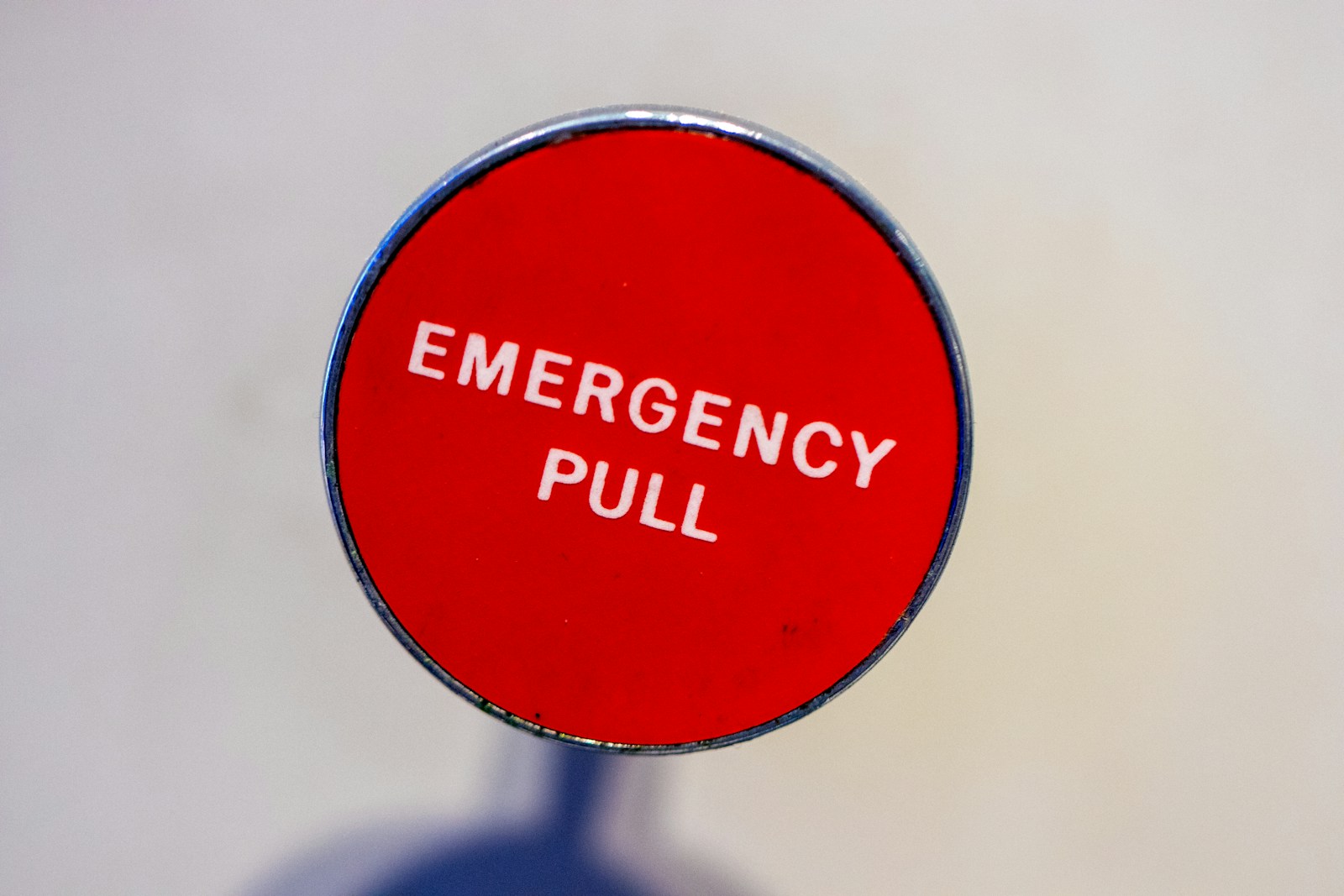Being prepared for emergencies is essential for ensuring your safety and the safety of those around you. One of the first steps in assessing your preparedness is to create a comprehensive emergency plan. This plan should outline various scenarios, such as natural disasters, medical emergencies, and power outages, and detail the steps you and your family should take in each situation.
Evaluate Your Emergency Supplies
Ensuring that you have an adequate supply of emergency essentials is crucial in times of crisis. Stock up on non-perishable food items, water, first aid supplies, and any necessary medications. Additionally, make sure you have tools such as flashlights, batteries, and a portable radio on hand. Having these supplies readily available can make a significant difference in how you and your loved ones cope during an emergency.
Creating a Comprehensive Supply List
To get started, create a comprehensive checklist tailored to your household’s needs. Here’s a basic list to consider:
- Non-Perishable Food: Canned goods, dry pasta, rice, and snacks. Aim for at least a three-day supply per person.
- Water: Store one gallon per person, per day for drinking and sanitation.
- First Aid Kit: Bandages, antiseptic wipes, pain relievers, and any specific medications needed by family members.
- Tools and Equipment: Flashlights with extra batteries, a manual can opener, a multi-tool, and a whistle.
- Communication Devices: A battery-powered or hand-crank radio to receive emergency alerts.
Personalizing Your Supplies
Consider any special needs in your household. For instance, if you have infants, ensure you have baby formula, diapers, and wipes. Pet owners should include food, water, and any medications for their animals. Regularly check expiration dates on food and medicine, and rotate supplies as needed to ensure freshness.
Practice Emergency Drills
Regularly practicing emergency drills with your family or household members can help ensure that everyone knows what to do in case of an emergency. Conduct fire drills, evacuation drills, and communication drills to test your response and identify any areas that need improvement. By simulating various emergency scenarios, you can better prepare for real-life situations and react quickly and efficiently when time is of the essence.
Fire and Evacuation Drills
Start with a simple fire drill. Designate escape routes and meeting points outside your home. Practice this drill at different times of the day and under various conditions to ensure preparedness. For evacuation drills, map out primary and secondary routes, and practice the plan, considering any mobility issues household members might have.
Communication Drills
Establish a communication plan that includes contact information for each family member and an out-of-town contact. Practice a drill where each member calls or texts the designated contact to confirm their status. This can help ensure that everyone knows how to communicate effectively if separated.
Stay Informed
Stay informed about potential emergency situations in your area by signing up for alerts from local authorities or emergency services. Monitor weather reports, news updates, and official channels for the most up-to-date information. Being informed can help you make timely decisions and take appropriate actions. Additionally, educate yourself and your family on the specific risks in your region and customize your emergency plan accordingly.
Using Technology to Stay Alert
Consider downloading emergency alert apps on your smartphone. Many local governments offer apps that provide real-time updates on weather conditions, road closures, and other critical information. Websites like Ready.gov offer resources to help you understand different types of hazards and how to respond.
Community Resources and Networks
Engage with your community by joining local emergency preparedness groups. These organizations often provide valuable resources and training opportunities. They can also be a great way to share information and strategies with neighbors, fostering a supportive network that can be crucial during emergencies.
Review and Update Your Plan
Regularly review and update your emergency plan to account for any changes in your household, such as new family members, pets, or health conditions. Make sure everyone is familiar with the plan and knows where to find it in case of an emergency. Practice revisiting and rehearsing your plan to ensure that it remains relevant and effective, adjusting any procedures as needed based on feedback and lessons learned from previous drills.
Adapting to Changes
Life is dynamic, and so should be your emergency plan. If you move to a new location, reevaluate the risks and adjust your plan accordingly. Regularly test communication channels to ensure they remain functional and effective.
Documenting and Sharing Your Plan
Keep a written copy of your emergency plan in an easily accessible location. Share it with all household members, and consider providing copies to trusted neighbors or relatives. This transparency can be invaluable if someone outside your immediate household needs to step in during an emergency.
Seek Training and Certification
Consider seeking training and certification in basic first aid, CPR, and emergency response techniques. Being properly trained can empower you to take swift and effective action in emergencies and potentially save lives. Look for local courses or community programs to enhance your skills. By investing in your own knowledge and abilities, you can increase your confidence in handling emergency situations and provide critical assistance to those in need.
Finding the Right Training Programs
Explore options through local Red Cross chapters, community centers, or online platforms. Many organizations offer affordable courses that cover a range of emergency skills. Make it a family activity by encouraging older children to participate in age-appropriate training.
Building a Supportive Network
In emergencies, having a strong support network can make all the difference. Start by identifying friends, family, and neighbors who can assist or need assistance during a crisis. Discuss your plans with them and establish mutual support agreements. Knowing whom to reach out to and having them aware of your situation can significantly enhance your safety and well-being during emergencies.
Neighborhood Preparedness
Organize community meetings to discuss emergency strategies and resources. Create a neighborhood contact list and a map of houses with important information like homes with elderly residents or those with special needs.
Financial Preparedness
Financial security is often overlooked in emergency planning, but it’s crucial. Start by setting aside an emergency fund to cover unexpected expenses, such as temporary lodging or repairs. Keep a small amount of cash on hand, as ATMs and credit card systems may be down during power outages.
Document Safety
Ensure important documents, like insurance policies, identification, and medical records, are safely stored. Consider using a fireproof safe or digital cloud storage. Having these documents readily accessible can expedite recovery efforts in the aftermath of an emergency.
Understanding Insurance Coverage
Review your insurance policies regularly to ensure you have adequate coverage for potential disasters in your area, such as floods or earthquakes. Speak with your insurance agent to clarify any doubts and make necessary adjustments to your policies to cover gaps in coverage.
Psychological Preparedness
Mental resilience is a critical component of emergency preparedness. Stress and panic can hinder effective response in crises, so it’s important to cultivate a mindset that remains calm under pressure.
Coping Strategies
Teach your family coping strategies such as deep breathing exercises, visualization, or meditation. Encourage open discussions about fears and concerns related to emergencies. Being mentally prepared can help you and your loved ones stay focused and composed during high-pressure situations.
Support Networks
Consider joining support groups or seeking professional help if anxiety about potential emergencies is overwhelming. Sharing experiences and strategies with others can provide comfort and practical advice.
By taking these steps to enhance your emergency preparedness, you can significantly improve your ability to respond effectively to a variety of situations. Regularly reviewing and refining your plans and resources ensures that you and your family remain ready to face whatever challenges may arise. Remember, preparation is an ongoing process, and staying informed and engaged is the key to resilience.




